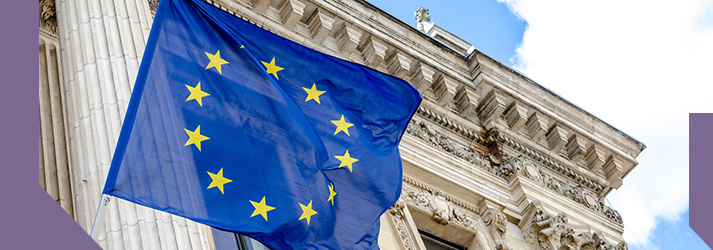August 2018
Share prices dipped across European markets at the end of August following the news that consumer confidence in the eurozone had posted a sharp drop. According the European Commission (EC), household sentiment was dragged down by concerns over employment prospects, although broader confidence over the economic outlook remained generally intact.
- Business confidence picked up in Germany
- Producer prices rose strongly; core consumer inflation was more muted
- The eurozone’s unemployment rate remained at 8.2%
To view the series of market updates through August, click here
Share prices dipped across European markets at the end of August following the news that consumer confidence in the eurozone had posted a sharp drop. According the European Commission (EC), household sentiment was dragged down by concerns over employment prospects, although broader confidence over the economic outlook remained generally intact. The drop in optimism was particularly marked in France, Italy and Spain, whereas it remained almost unchanged in Germany. The rate of unemployment in the euro area was unchanged at 8.2% during July, remaining at its lowest level since November 2008.
“After eight years, Greece’s controversial bailout programme was wound up in August”
After eight years, Greece’s controversial bailout programme was wound up in August. Looking ahead, the country’s leaders will have to bankroll its spending via taxes or borrowing. Greece’s financial sector is finally judged to be in a much stronger position following recapitalisation operations, a revamp of bank governance, and efforts to reduce non-performing loans. The Athens Composite Index fell by 4.2% during August.
Economic growth in the eurozone rose more quickly than first calculated during the second quarter of 2018. According to the EC, growth is estimated to have risen to 0.4% during the period, compared with earlier indications of 0.3%, boosted by stronger expansion in Germany. The Dax Index declined by 4.3% in August, while France’s benchmark CAC 40 Index fell by 1.9%.
Business confidence in German companies picked up in August, according to the Ifo Institute, boosted by a “robust” domestic economy and by optimism that global trade conflicts could be resolved. In particular, sentiment improved in the manufacturing sector, led by a renaissance of optimism amongst automotive firms. Ifo also found a “significant” improvement in the business climate within the services sector.
According to minutes from the European Central Bank’s (ECB’s) July monetary policy meeting, ECB officials predict solid, broad-based economic growth in the eurozone, generally playing down the possible impact of global trade wars. The ECB expects to complete its programme of monetary stimulus measures at the end of 2018 and appears confident that it can achieve its inflation target of below, but close to, 2%. Although headline inflation in the eurozone rose at an annualised rate of 2.1%, core inflation grew by a more modest rate of 1.4%. Elsewhere, industrial producer prices in the eurozone rose strongly: prices increased at an annualised rate of 3.6%, underpinned by higher energy costs.
A version of this and other market briefings are available to use in our newsletter builder feature. Click here





